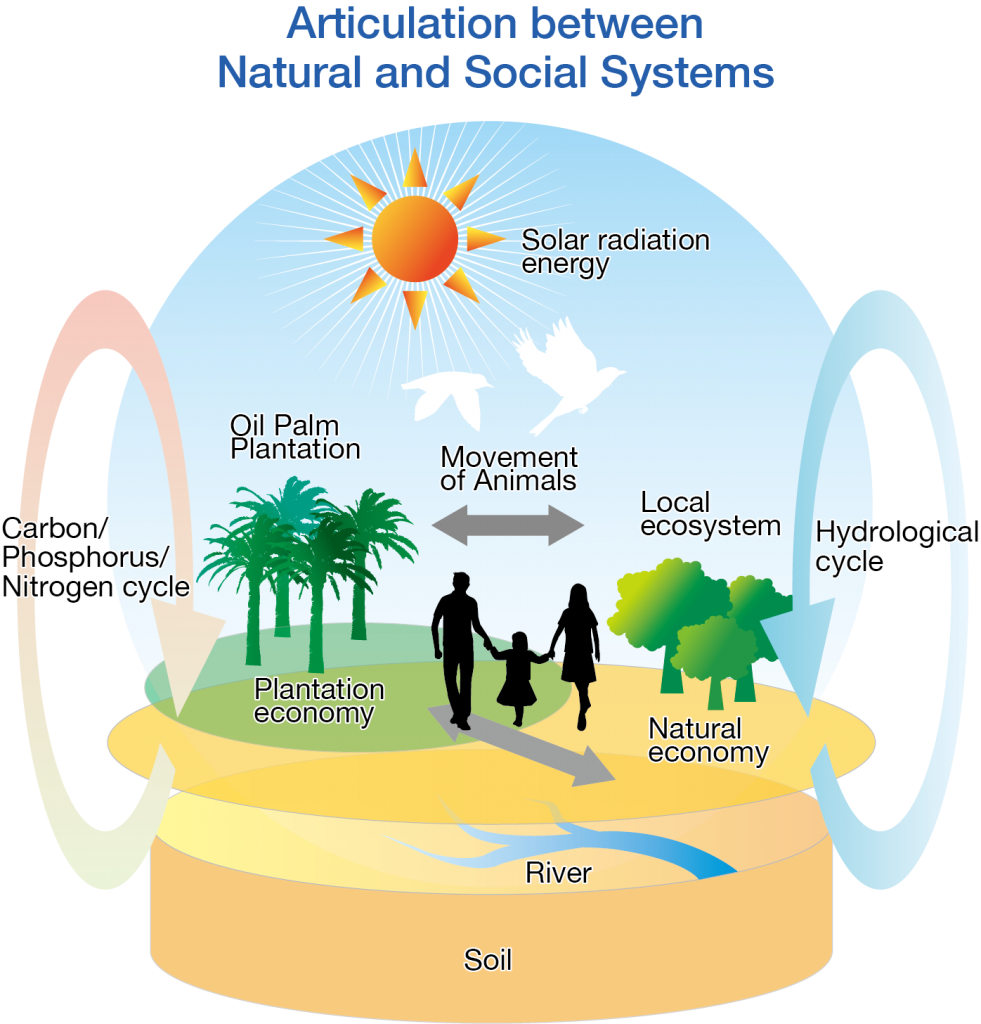Planted Forests in Equatorial Southeast Asia: Human-nature Interactions in High Biomass Society
Project Leader : ISHIKAWA, Noboru
Project Members : SODA, Ryoji, KONO, Yasuyuki, SUGIHARA, Kaoru, MIZUNO, Kosuke, TOKUCHI, Naoko, UCHIBORI, Motomitsu
Period : FY2010-2015
Research Summary :
The tropics have the highest potentiality to reproduce biomass due to greater solar radiation and active heat and water cycle. The region has also been the most fertile ground for bio-resource commodification in human history. With the changing status of biomass as forest and agricultural products, bio-materials, and financial instruments, the tropical zone has undergone fast-paced metamorphoses from extensive, environment-dependent, resource utilization to intensive agro-industrial production, including large-scale plantation of oil palm and Acacia mangium. Defining high biomass society as a crucial niche for global survival and sustainability, this project examines the multidimensional driving forces of change in northern Borneo. High biomass societies offer important locales to investigate the transformation of regional landscapes for food production, development of renewable sources of energy and biomaterials, and reduction of carbon emission. Formulas for better articulation among human community, local fauna and flora, geospheric/atmospheric circulations, and global political economy are duly needed. Scholars across disciplines are to set new agenda.

